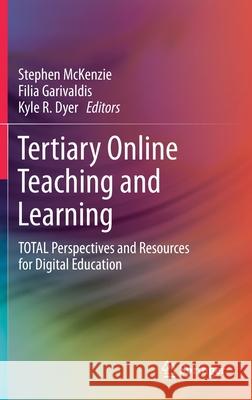Tertiary Online Teaching and Learning: Total Perspectives and Resources for Digital Education » książka
topmenu
Tertiary Online Teaching and Learning: Total Perspectives and Resources for Digital Education
ISBN-13: 9789811589270 / Angielski / Twarda / 2020 / 343 str.
Tertiary Online Teaching and Learning: Total Perspectives and Resources for Digital Education
ISBN-13: 9789811589270 / Angielski / Twarda / 2020 / 343 str.
cena 533,13
(netto: 507,74 VAT: 5%)
Najniższa cena z 30 dni: 501,19
(netto: 507,74 VAT: 5%)
Najniższa cena z 30 dni: 501,19
Termin realizacji zamówienia:
ok. 16-18 dni roboczych.
ok. 16-18 dni roboczych.
Darmowa dostawa!
Kategorie:
Kategorie BISAC:
Wydawca:
Springer
Język:
Angielski
ISBN-13:
9789811589270
Rok wydania:
2020
Wydanie:
2020
Ilość stron:
343
Waga:
0.68 kg
Wymiary:
23.39 x 15.6 x 2.06
Oprawa:
Twarda
Wolumenów:
01
Dodatkowe informacje:
Wydanie ilustrowane











